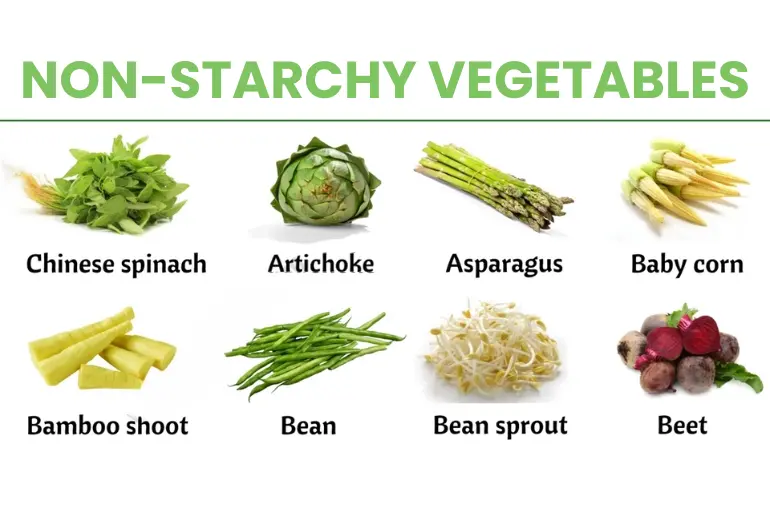When does diabetes occur?
When the body either does not make enough insulin, cannot use the insulin it does produce or it can be a combination of both. Ultimately, this results in the accumulation of sugar in the bloodstream which makes dietary precautions an important part of diabetes management.
Different foods have different benefits, and often what seems nutritious may not be the best choice for diabetes. Of real importance for someone with fluctuating blood sugar levels is the glycemic index or GI content of a food. This measures the rate at which a portion of food will raise blood sugar, and seemingly foods with a low GI are a preferred choice for diabetics.
While it may be difficult to chart a single dietary approach to effectively manage diabetes, some general guidelines help manage the disease and ensure a healthy lifestyle. Essentially, it is important to choose foods that do not cause a sudden spike in blood sugar.
Best foods for diabetes diet
Here is a list of 5 foods that are nutritious and good for people with diabetes
1. Non-starchy Vegetables
Non-starchy vegetables have fewer carbs but they are still very effective at keeping hunger at bay and providing a nutritious supply of minerals, fiber, vitamins and phytochemicals (i.e. substances with protective or disease-preventive properties). Some examples of non-starchy vegetables are cabbage, carrots, cauliflower, mushrooms, onions, broccoli and asparagus. Since they have very few calories, they are ideal food choices for people with diabetes. Plus, an added benefit is that the American Diabetes Association (ADA) has identified non-starchy vegetables as having a low GI index!

2. Apples
We’ve all heard the old saying about apples keeping doctors away. The good news is that it’s still true and in fact, apples may even prevent diabetes. In a study conducted by the Harvard School of Public Health, the diets of 200,000 people were examined and researchers found that participants who reported eating five or more apples per week had a 23% lower risk of developing type 2 diabetes compared to participants who did not eat any apples. One of the great benefits of apples is their low carb content, as low as 15 carbs for a small apple.
3. High Fibre Vegetables
Vegetables like peas, beans and spinach are rich in fiber and thus an ideal addition to a diabetic patient’s diet. Beans are also an excellent source of protein and research has found that they help lower blood sugar and blood pressure.
Furthermore, the American Heart Association Journal suggests that fiber consumption may reduce the risk of a first stroke and researchers have discovered that every 7 gram increase in total dietary fiber is associated with a 7% lower risk of a first stroke.
Some great bean options include kidney beans, chickpeas or moong beans and we recommend including beans in your diet as a main source of protein at least once or twice per week.
4. Green Leafy Vegetables
Everyone knows that green leafy vegetables are extremely healthy additions to the diet. But, very few of us know why! First of all, they are very low in digestible carbs, thus helping to control blood sugar levels and making them the perfect choice for diabetics.
Additionally, they are a great source of vitamins, especially vitamin C which has been found to reduce inflammatory markers and fasting blood sugar levels for people with type 2 diabetes or high blood pressure. Their antioxidant properties make them a common choice in most modern diets, regardless of diabetes.
Fortunately, there is no shortage of healthy leafy greens in India and spinach and fenugreek are a great choice for those looking to add some green to their plate!
5. Almonds, cashews or walnuts – Nuts
Nuts are another great addition to the diabetes diet as they contain protein, vitamins, unsaturated fats and minerals; this helps reduce cholesterol, inflammation and insulin resistance. Research suggests that adding 50 grams of almonds, cashews or walnuts to your daily diet can help control high levels of fat and sugar.
Overall, your diet plan should have limited carbohydrates and include snacks that fall in the above-mentioned list. Other healthy options include melons, flax seeds or water-filled healthy vegetables like cucumber or lemon.
Conclusion:
In conclusion, managing diabetes through diet involves choosing foods that regulate blood sugar levels effectively. Non-starchy vegetables, apples, high-fiber vegetables, green leafy vegetables, and nuts are excellent choices for people with diabetes. These foods not only have a low glycemic index, which prevents sudden spikes in blood sugar, but they also provide essential nutrients and health benefits. Incorporating these foods into a balanced diet can help control blood sugar, reduce the risk of complications, and promote overall health.
Note:
If you want to try more remedies click here: WellHealthOrganic.com.
